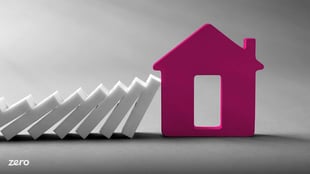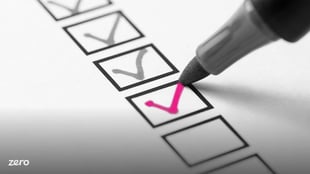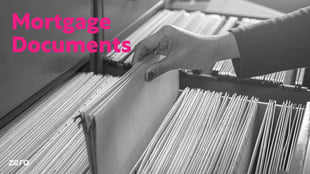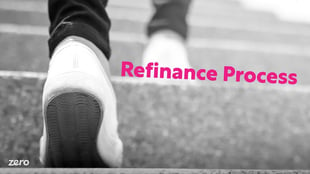What Are Mortgage Refinance Fees & What Can You Do to Lower Them?

Refinancing your home can save you thousands of dollars per year! When you extrapolate that savings over the lifetime of your loan, it’s no secret why refinancing seems like an attractive option for millions of homeowners.
However, it’s important to note refinancing your mortgage comes with fees. Before you decide if refinancing is right for you, be sure to do all the math on the various fees associated with refinancing
Refinancing Fees
What exactly are the mortgage refinance fees? Mortgage refinance fees cover a wide range of expenses associated with refinancing your loan. Some of the most common fees are:
- The Appraisal Fee: Before a bank is willing to lend you money, or refinance your existing loan, they want to be sure the property is actually worth the money you’re asking for. If the property does not appraise for the loan value you’re requesting, you may have to make a larger down payment and bridge the gap between the appraised value and requested loan value. These fees range from $300 on the lower end to $700+ on the high end.
- Credit Report Fees: All lenders will want to check your credit score and credit history before they agree to lend you money. Banks will send your information to a big credit report agency, who will do a deep dive into your credit score. This fee is typically between $30 and $50.
- Application Fees: Although this fee is not applicable to all vendors, some banks or lenders do have an application fee. Before you can even begin the refinancing process, the application fee must be paid.
- Origination Fee: This fee is what a lender charges to properly set up the loan. These fees are negotiable, and on average range from 0.50 - 1.5% of the total loan value.
- Attorney Fees: Considering how important a mortgage is, and the various legal jargon found within your loan paperwork, working with an attorney is always a smart idea. Each attorney or law office has their own fees, but it’s common for these fees to cost between $500 and $1,000.
What documents do you need to complete the refinance process? Find out here!
Should You Refinance?
Refinancing your mortgage has a tremendous amount of benefits.
There are an endless number of reasons why someone may consider refinancing, but these reasons certainly make the top of any list.
- Refinance your mortgage to receive a lower interest rate. Cutting your interest rate by 100 basis points can save you tens of thousands of dollars over the lifetime of your mortgage!
- Changing the terms and conditions of the loan. Perhaps you were a first time homebuyer and purchased a home via an FHA mortgage. These mortgages could be a great option for those just starting out, or for your first home, but as you become more financially established, you may be interested in converting your mortgage to a conventional loan to avoid making private mortgage insurance (PMI) payments. Similar to the above, changing your loan terms and conditions has the potential to save you thousands of dollars!
- You need the money to pay for a major life expense. You may be looking to send your kids to college, or even remodel your home. No doubt, both of these can be expensive. You can convert the equity you have in your home to cash through refinancing - which can help you achieve the other life goals/desires you want to achieve.
How to Lower Your Refinance Fees
Understandably, the fee list outlined above may seem intimidating, but there are ways to lower your refinance fees.
The best way to lower your refinancing fees is to shop around for the most competitive rate possible. The borrower has the right and freedom to secure financing from a lender of their choice. Be sure to work with a lender who provides the most competitive package, taking interest rates, customer service, and refinance fees into consideration.
Some lenders also have lender specific fees. As the borrower, give the lender pushback to get a lower fee. For instance, if the lender is charging an application fee, ask for that fee to be waived. You’d be surprised what someone is willing to give just to earn your business
Our Mortgage Learning Center features blogs on a wide range of mortgage and refinancing topics.
Consult Mortgage Professionals
Considering a mortgage could be the largest financial obligation one will have over their life, you must be very careful and aware of what you’re getting yourself into. Refinancing can save you money if done properly, but it can also go against your financial best interest.
Some people choose to refinance their mortgage as a way of financing other life expenses. Although this can be a huge advantage, it can also be a huge disadvantage if you truly can’t afford those other life expenses. Just because the equity is in your home doesn’t mean you need to cash it in!
If your existing interest rate on your mortgage is less than the refinanced interest rate, it may not be in your best interest to refinance your loan. Interest is a meaningful expense, and spread out over the loans term, an increase of just $50 - $100 a month can be a significant expense.
Last but not least, if you’re refinancing your loan to save money each month, consider how long you plan on staying in your home for. If your current mortgage is $2000/month, and your new mortgage under a new interest rate is $1850 a month, you may be excited thinking you can save $150 a month. However, you must keep in mind the fees associated with refinancing. If you paid $5,000 in refinancing fees, it would take you just about three years to recoup that money ($5,000 / $150 = 33.33 months). Not to mention that $5,000 could have earned interest over the years, so there is also a lost opportunity expense worth considering.
Refinance at a Great Rate Today!
This page last updated: October 6, 2022
Read more on this topic below.

When you buy a house and start making mortgage payments, your payment consists of four different components, known...

People buy their homes for a number of reasons. Affordability, stability, and comfort are some of the most...

Some homebuyers refuse to purchase a property if it is part of a property owner association. On the...

Research indicates that 58% of homeowners in HOA communities and single-family homes pay an average monthly fee...

Private mortgage insurance is something millions of homeowners pay for each year. However, this type of insurance does not protect

A mortgage is often the largest monthly expense homeowners pay. The thought of reducing the amount...

A home doesn’t just fall into foreclosure status. There are stages and processes that take place behind the scenes before...

It’s likely that your mortgage loan will be the largest loan you have during your lifetime. Mortgages are not a one size...

A loan estimate is crucial to obtain when looking for a loan. This estimate not only gives you the details of a mortgage but also compares offers...

If you’re looking to buy a house, and do not have a mountain of cash saved up, you’ll need to consider getting a mortgage to help you finance this...

Buying a home? You’ll likely need to get it appraised before you receive the clear to close. If you’re wondering...

Innovative and cost-effective home improvement ideas are all over the internet, especially when it comes to...

Whenever you are borrowing money, whether it’s for a new mortgage, a refinance, credit card, or car loan, you’ll hear...

Refinancing can open up opportunities for homeowners to cash out on equity, reduce monthly mortgage payments, or renegotiate the interest...

The interest rate on a mortgage is simply the fee a lender charges the borrower for borrowing their money. Over the...

A cash-out refinance is the process of taking the equity you have built in your home in the form of a cash deposit into a designated account...

Consider this scenario. You bought a house several years ago, and at the time, you thought you got a pretty great...
